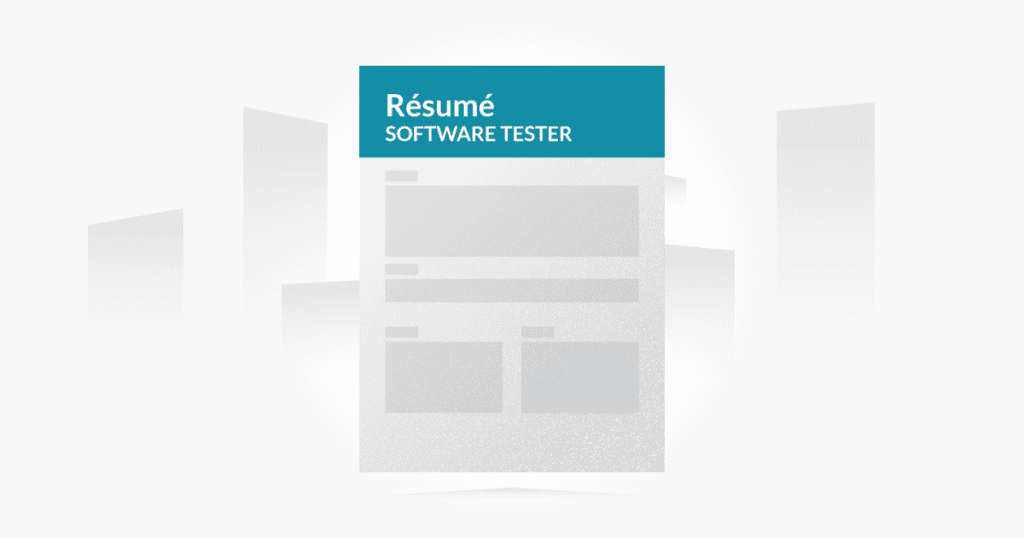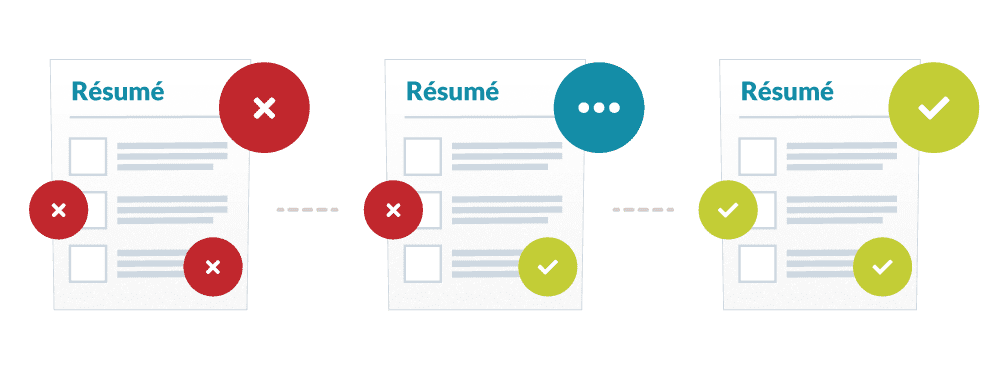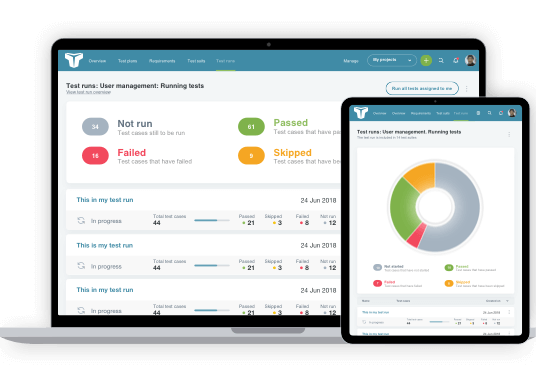When a software tester job listing catches your attention and you know it’s just right for you, the awkward truth is that you won’t be the only person thinking this. With so many applications being made for each job these days, is landing the role just a work version of a lucky dip at the funfair? The only information the hirer will have to differentiate you from any other candidate, unless you are already at the company, is your software tester resume – buried somewhere in the pile of other resumes. So what can you do to give your CV its very best chance of wearing that crown?

How to Begin your Software Tester Resume
Begin by typing your name, email and phone number on the top of the page; it’s preferable that you don’t write the words resume or CV. Next, you need to make sure you understand the needs of the employer and what they are looking for in the successful candidate, so be sure to become closely acquainted with the job spec. Plan to write between one and two pages, but no more, unless you are management grade with obviously more experience to relate. From here, whatever you write must be created from the viewpoint of the employer:
- What information will they be looking for here? They won’t need to know about your family background, or your age.
- What kind of a person exhibiting which characteristics, would they like to know more about?
- The brief will tell you the ideal skills and experience the new employer is hoping to attract. If you fit the bill, make sure they know this in detail – but remain truthful. The attributes of honesty say more about your qualities as a person worth hiring, than one who deceives from the very start.
Functioning like the front page of a newspaper, place a strong professional summary containing eye-catching information such as your most in-demand skills and your major job accomplishments on page one, where they can easily be seen. Highlighting the major skills you mention can be helpful. Just underneath this, or to the side, present a bullet point list of distinct skills, strongest to less strong, and in order of relevance to the job you are applying for.
Leave your education and general timeline work experience for the second page. Your education path should be listed in reverse order with your most recent at the top. This will save the person you are aiming to impress from having to scan down to find the highest education level you have attained. If you plan to use a table structure, limit its use to just your qualifications and work experience.
In software testing, a person’s skill set can inform the future employer not only whether they should offer you a position, but also where they think you will best fit in, so adding a skills list can be an important inclusion too. Give this separate entry as a bullet list that’s either within the body of your CV or as a side panel, but again with your most impressive at the top then working down.
Once you have recorded all the details, make it clear that your education has not finished yet. Employers are not interested in hiring people who seem content to rest upon their laurels, so indicate your a strong desire for ongoing personal development with suitable examples. Will you be advancing your formal education, or taking work related courses or maybe researching wider topics for study? Whatever you have in mind for yourself, make sure the person tasked with selecting the interview shortlist knows about your drive for self-improvement.
Soft Skills
Once you have done a good job of listing your education, and described the progress of your career, there is still more that your future employer needs to know, and it’s this extra information that can set you apart from your peers. This secondary section relates to a grouping called soft skills. If hard skills can describe everything that you have included so far, soft skills are the intangibles, the human traits. It’s how you interact with other people, in this case, your potential future colleagues. Below is a useful although not conclusive list of valuable soft skills for you to consider weaving into your resume as applicable, and for more suggestions, visit our post on the Characteristics of a Good Software Tester. You will likely recall examples of when you have gone the extra mile to support your team, or have made a breakthrough in problem solving by having the confidence to act upon your initiative.
- Good communication
- Creativity in thinking
- A good work ethic.
- Strong at teamwork
- Comfortable and intuitive when networking
- Able to make well considered decisions
- A positive, can-do attitude
- Excellent time management
- Self-motivated
- A flexible nature
- Confidence in problem solving
- Being able to think critically
- Equitable and confident in conflict resolution
Finishing Touches
Your resume is likely to be packed with impressive information by now but unfortunately, all your brilliant content will count for little if no-one actually reads it. So now, take an analytical look at how your resume comes across.

According to the most recent survey, the person sitting with a bin on one side, and the “possibles” file on the other, takes less than 10 seconds to make a judgement call about your future, with half of all respondents confessing to taking as little as 8 or even 6 seconds to come to an opinion. Below, you will find a tick-list of fundamentals to go through before you sign off your impressive content:
- Spelling mistakes and bad grammar (hint: check everything before you submit. The popular app Grammarly can be useful here.)
- Your selected formatting must be clear and consistent.
- Do not submit more than 2 pages. Condense your info and don’t waffle.
- Avoid using jargon or a casual tone of voice because it gives a “don’t care” impression.
- Steer away from using an unusual font style or size. It will certainly grab their attention but probably for all the wrong reasons
- No-one wants to know all your exam grades. Just stick to relevant qualifications of a high enough education level.
- Avoid listing unremarkable hobbies such as reading or gardening as they don’t impress and are not deal breakers.
- Any extracurricular activities and interests that you do include make a stronger impact if related to personal development. Employers prefer to work with rounded, developed characters who can enrich their company beyond completing work tasks, so don’t leave this category blank.
- Away from your CV, make sure that your social accounts like LinkedIn and Twitter, tell positive stories about you.
Ready To Impress
You should now have a strong, well presented resume that demands to be read. Although nothing is guaranteed in life, by taking the trouble to seek guidance and follow the advice from probably more than this one source, you are proving yourself to be resourceful and a person who tries their best. You sound just the kind of employee that any company would want to work with. Here’s wishing you the very best of luck in your job hunting.

